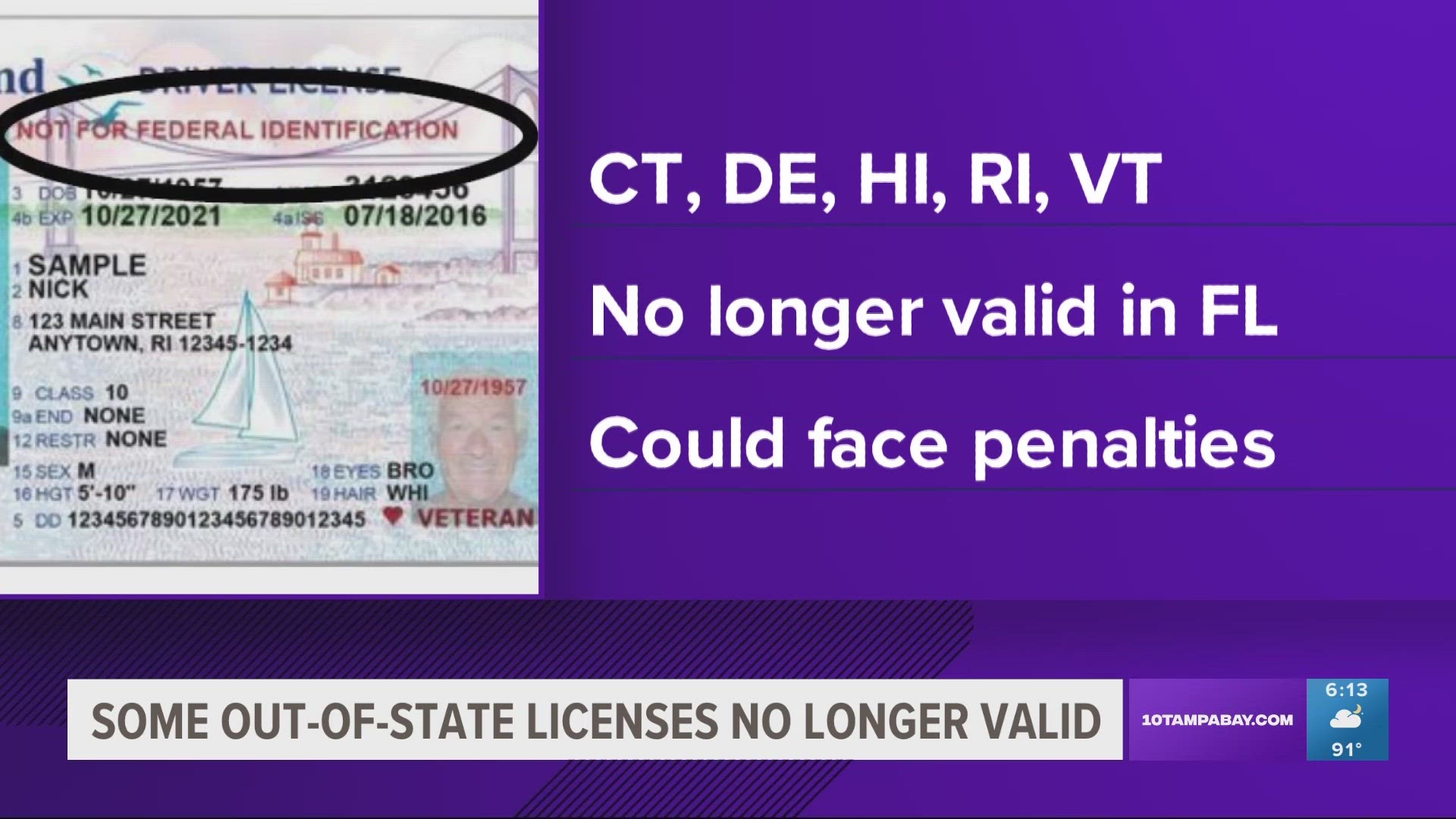ST. PETERSBURG, Fla. — If you're visiting Florida from out of state, you'll want to read this — as of July 1, the state no longer recognizes specific classes of driver's licenses from five states.
Why? According to Gov. Ron DeSantis' office, it's all part of the "strongest anti-illegal immigration" legislation "in the country." DeSantis signed the sweeping bill into law back in May.
The law does a lot, including expanding requirements for businesses with more than 25 employees to use E-Verify, a federal system that determines if employees can legally work in the U.S. Additionally, the law enhances smuggling penalties along with subjecting offenders to prosecution under the Florida RICO Act.
Moreover, the law singles out and invalidates specific classes of driver's licenses in Connecticut, Delaware, Hawaii, Rhode Island and Vermont. This doesn't mean all driver's licenses from those states are invalid but rather specific types of licenses. You can find a list of those classifications online by clicking here.
The law also makes it illegal to issue a driver's license to "anyone who does not provide proof of lawful presence in the U.S."
“Someone who is in our country illegally and has violated our laws should not possess a government-issued ID which allows them access to state-funded services and other privileges afforded to lawful residents,” DeSantis said in part in a statement.
Florida Department of Highway Safety and Motor Vehicles (FLHSMV) leaders said it and the Florida Highway Patrol will "strictly enforce" the new law, insisting the law is "about safety and security."
"This legislation supports two of our primary goals: to enhance homeland security and to interdict criminal activity," FLHSMV Executive Director Dave Kerner said in part in a statement. "It communicates our state policy that Florida will not provide incentives to undocumented immigrants, while reminding criminal cartels and those who are planning to unlawfully cross our national border that Florida should not be their destination of choice. Florida will not accept driver licenses from those who cannot provide proof of lawful presence in the United States. By doing this, we commit to a safer Florida."
In the weeks leading up to the law taking effect, demonstrators in Florida have protested against it and other controversial laws that recently went into effect.
According to the U.S. Census, in Pinellas County, 10.6 percent of the population is Hispanic or Latino.
"I believe that most people here are here legally; the ones that aren't, are trying very hard to get here legally," Eli Gonzalez, the president of the Hispanic Chamber of Commerce, said. "You know, they got here illegally. But now there's just this process that they're in the middle of there, and they would be caught in the crossfire with this bill."
The Florida Policy Institute estimates the state's most labor-intensive industries could lose 10 percent of their workforce, costing the state $12.6 billion dollars in one year, CBS News reported.
Gonzalez points out that many of the people living in Pinellas County illegally work the jobs most wouldn't want to work.
"Hospitality, landscaping, restaurants," Gonzalez continued. "A lot of these industries are going would be impacted. And again, there's not gonna be anybody else to fill those shoes...I think a lot of people that don't think they will be impacted will be impacted. Because a lot of the services that they're used to are just going to disappear."
10 Tampa Bay's Courtney Holland and Malique Rankin contributed to this report.

